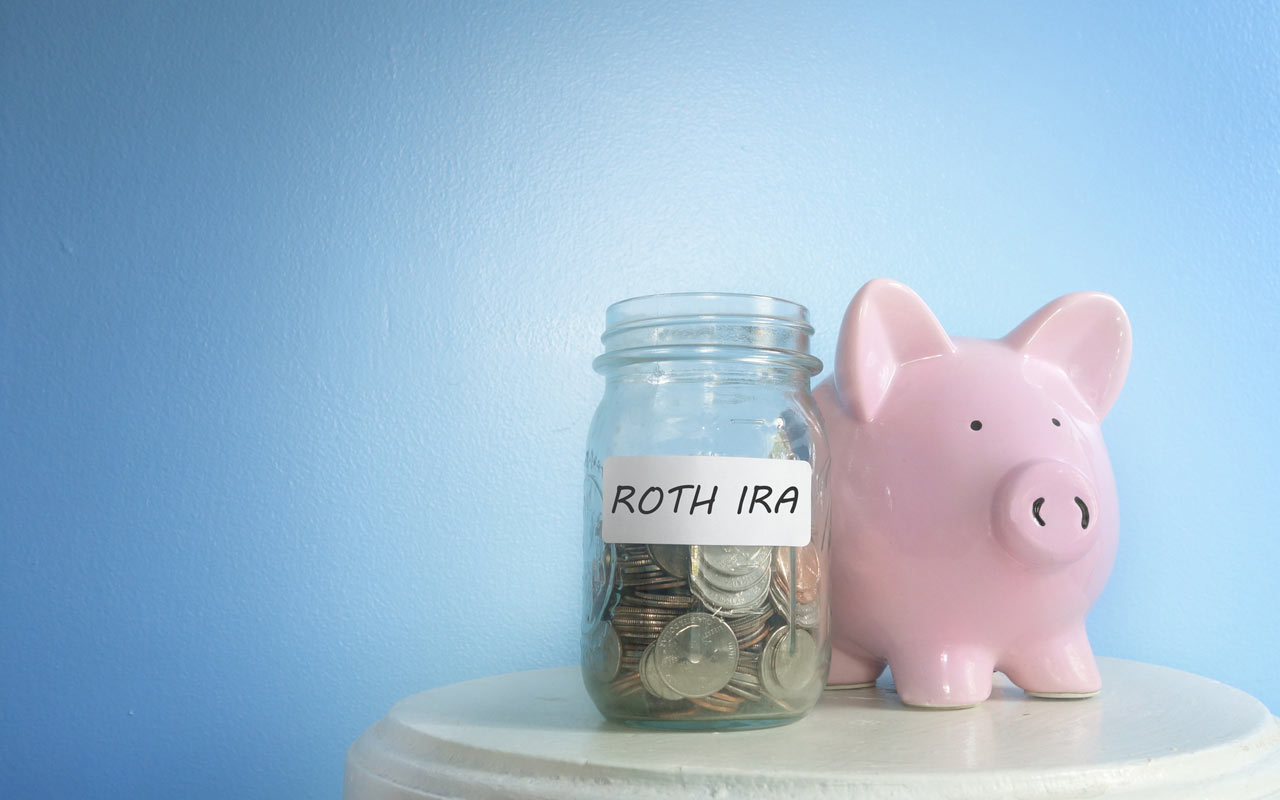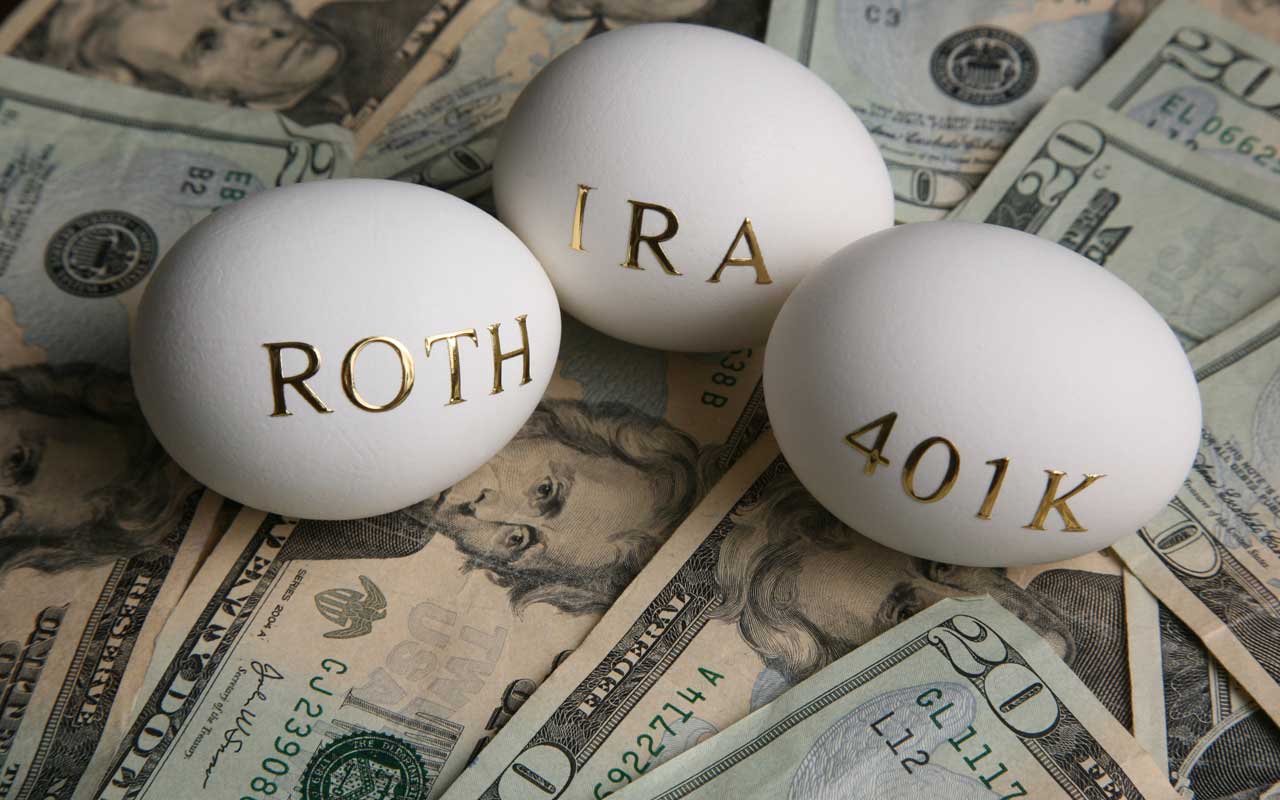Inherited 401(k)s: 6 Questions Heirs Need to Ask
An inherited 401(k) can be a lasting legacy, but the windfall needs to be handled carefully to maximize the inheritance and minimize taxes.


Profit and prosper with the best of Kiplinger's advice on investing, taxes, retirement, personal finance and much more. Delivered daily. Enter your email in the box and click Sign Me Up.
You are now subscribed
Your newsletter sign-up was successful
Want to add more newsletters?

Delivered daily
Kiplinger Today
Profit and prosper with the best of Kiplinger's advice on investing, taxes, retirement, personal finance and much more delivered daily. Smart money moves start here.

Sent five days a week
Kiplinger A Step Ahead
Get practical help to make better financial decisions in your everyday life, from spending to savings on top deals.

Delivered daily
Kiplinger Closing Bell
Get today's biggest financial and investing headlines delivered to your inbox every day the U.S. stock market is open.

Sent twice a week
Kiplinger Adviser Intel
Financial pros across the country share best practices and fresh tactics to preserve and grow your wealth.

Delivered weekly
Kiplinger Tax Tips
Trim your federal and state tax bills with practical tax-planning and tax-cutting strategies.

Sent twice a week
Kiplinger Retirement Tips
Your twice-a-week guide to planning and enjoying a financially secure and richly rewarding retirement

Sent bimonthly.
Kiplinger Adviser Angle
Insights for advisers, wealth managers and other financial professionals.

Sent twice a week
Kiplinger Investing Weekly
Your twice-a-week roundup of promising stocks, funds, companies and industries you should consider, ones you should avoid, and why.

Sent weekly for six weeks
Kiplinger Invest for Retirement
Your step-by-step six-part series on how to invest for retirement, from devising a successful strategy to exactly which investments to choose.
An inherited 401(k) can be a lasting legacy, but the windfall needs to be handled carefully to maximize the inheritance and minimize taxes. Your relationship to the deceased and the 401(k) plan’s own rules affect your options for managing the money. It’s critical to understand the rules, because “if you make a mistake, it’s hard to reverse,” says Rob Williams, vice president of financial planning for the Schwab Center for Financial Research. Step carefully, and you can avoid pitfalls of inheriting a 401(k).
Here are six key questions 401(k) heirs should ask.

What Are the 401(k) Plan Rules?
A 401(k) heir’s first step: Contact the plan sponsor or company benefits department to sort out what options are available to heirs for that particular plan. Some companies, for example, may allow heirs to keep the money in the plan and take beneficiary required distributions from it, while others may only allow an heir to take the money out in a lump sum. The rules depend on the 401(k) plan document written by the company. “Every company can limit what rules apply,” says Christine Russell, senior manager of retirement and annuities for TD Ameritrade.
Ask for a copy of the plan document, and “tell the employer not to liquidate until given directions,” says Mark Luscombe, principal analyst for Wolters Kluwer Tax & Accounting.

What Is the Heir’s Relationship to the Original 401(k) Owner?
A spouse is automatically the sole beneficiary of the 401(k), unless he or she has given consent for other beneficiaries to be named, says Luscombe. And surviving spouses have more flexibility than nonspouse heirs on how they can handle the money.
Namely, spouses can choose to take the money as if they originally owned it, and all the rules for original owners will apply to the inherited money. A surviving spouse, for instance, could roll the money into her own 401(k) plan, if her plan allows money to be rolled in, says Gil Charney, director of the Tax Institute at H&R Block. Or the spouse could transfer the 401(k) money to her own IRA; nonspouses can’t do that. In some cases, a surviving spouse might want to remain a named beneficiary. Beneficiaries who are younger than age 59½, for instance, don’t pay the 10% penalty on early withdrawals.

Did the Original 401(k) Owner Start Required Distributions?
Determine whether the deceased had reached his or her required beginning date, or RBD, which is the date that owners must start taking required minimum distributions. The RBD for 401(k)s depends on whether the account owner was still working at the company. If the account owner had retired before age 70½ or was working at a different company, the RBD for the 401(k) is the April 1 after the owner turns age 70½. If the decedent was beyond that age and had not yet taken his required distribution for the year, heirs need to take that final distribution before the end of the year.
But if the decedent was still working at the company at his death and didn’t own 5% or more of the company, then he did not reach his RBD—even if he was, say, age 74. His RBD would have been the April 1 of the year following the year he retired. In this case, heirs don’t need to take a final RMD for the deceased.
Whether the deceased reached the RBD can also affect a beneficiary’s distribution options. Generally, if the account owner dies before his RBD, the beneficiary has the option to take all the money out within five years or stretch required minimum distributions over his own life expectancy; if the owner dies after his RBD, the nonspouse heir could stretch RMDs over his own life expectancy or the deceased’s life expectancy, whichever is longer. The heir needs to consult the plan’s rules to see what options the plan will allow.

Should the Money Stay in the 401(k)?
If a 401(k) plan allows heirs to keep the money in the plan, consider the pros and cons of doing so. In the 401(k), you might have access to lower-cost institutional shares or investment options—such as stable-value funds—that are not available outside of employer plans. But a plan might charge for setting up a distribution schedule or tack on a distribution fee each time money is withdrawn, says Russell. To keep the tax-deferred shelter, designated beneficiaries must start taking required minimum distributions by the end of the year following the year of the death.
Nonspouse beneficiaries need to ask the plan sponsor whether they are allowed to roll the 401(k) money directly into an inherited IRA. “It’s plan specific,” says Williams. “Some employers won’t allow you to roll over to an inherited IRA.”
If a plan does allow a direct transfer to an inherited IRA, make sure the inherited IRA is clearly titled with the name of the deceased participant and the name of the beneficiary. “If not, the whole process is tainted and the money could become taxable,” says Charney.
A rollover gives nonspouse beneficiaries all the options available to any IRA heir. Under current rules, that includes the ability to stretch required distributions over a beneficiary’s own life expectancy—which is “typically the most tax-efficient strategy,” says Eric Bronnenkant, the head of tax at Betterment for Business. The less you take out, the smaller your tax bill will be and the more money that can stay in the account to grow tax deferred.

Does a Roth Conversion Make Sense?
The IRS allows 401(k) heirs to convert the money directly into an inherited Roth IRA. (Traditional IRA heirs must keep the same tax treatment for the inherited account.)
If you make that direct transfer from a traditional 401(k) into an inherited Roth IRA, you’ll owe ordinary income tax on the amount converted. If the 401(k) is large, that tax bill could be hefty. Think twice about it, says Russell. Paying a tax bill upfront on a Roth conversion of your own account can make sense because as the original owner you can preserve the money in the Roth and let it grow tax-free without ever having to touch it. But heirs with inherited Roth IRAs must still take required distributions, so paying an upfront tax bill may make less sense, she says.

What If the Account is a Roth 401(k)?
Heirs will benefit from the tax-free treatment of money in a Roth 401(k) just as the original owner would have. So it’s important to be clear whether you are inheriting a traditional 401(k) or a Roth 401(k)—an account type that is increasingly common. If you inherit a Roth 401(k) and want to roll the money out of the plan, transfer the money directly into an inherited Roth IRA. You’ll have to take RMDs from the inherited Roth account, but the distributions are typically tax-free.
TAKE THE QUIZ: What Do You Know About Estate Planning, Wills and Trusts?
Profit and prosper with the best of Kiplinger's advice on investing, taxes, retirement, personal finance and much more. Delivered daily. Enter your email in the box and click Sign Me Up.

-
 How Much It Costs to Host a Super Bowl Party in 2026
How Much It Costs to Host a Super Bowl Party in 2026Hosting a Super Bowl party in 2026 could cost you. Here's a breakdown of food, drink and entertainment costs — plus ways to save.
-
 3 Reasons to Use a 5-Year CD As You Approach Retirement
3 Reasons to Use a 5-Year CD As You Approach RetirementA five-year CD can help you reach other milestones as you approach retirement.
-
 Your Adult Kids Are Doing Fine. Is It Time To Spend Some of Their Inheritance?
Your Adult Kids Are Doing Fine. Is It Time To Spend Some of Their Inheritance?If your kids are successful, do they need an inheritance? Ask yourself these four questions before passing down another dollar.
-
 States That Tax Social Security Benefits in 2026
States That Tax Social Security Benefits in 2026Retirement Tax Not all retirees who live in states that tax Social Security benefits have to pay state income taxes. Will your benefits be taxed?
-
 What to Do With Your Tax Refund: 6 Ways to Bring Growth
What to Do With Your Tax Refund: 6 Ways to Bring GrowthUse your 2024 tax refund to boost short-term or long-term financial goals by putting it in one of these six places.
-
 What Does Medicare Not Cover? Eight Things You Should Know
What Does Medicare Not Cover? Eight Things You Should KnowMedicare Part A and Part B leave gaps in your healthcare coverage. But Medicare Advantage has problems, too.
-
 12 Great Places to Retire in the Midwest
12 Great Places to Retire in the MidwestPlaces to live Here are our retirement picks in the 12 midwestern states.
-
 15 Cheapest Small Towns to Live In
15 Cheapest Small Towns to Live InThe cheapest small towns might not be for everyone, but their charms can make them the best places to live for plenty of folks.
-
 15 Reasons You'll Regret an RV in Retirement
15 Reasons You'll Regret an RV in RetirementMaking Your Money Last Here's why you might regret an RV in retirement. RV-savvy retirees talk about the downsides of spending retirement in a motorhome, travel trailer, fifth wheel, or other recreational vehicle.
-
 The 24 Cheapest Places To Retire in the US
The 24 Cheapest Places To Retire in the USWhen you're trying to balance a fixed income with an enjoyable retirement, the cost of living is a crucial factor to consider. Is your city the best?
-
 The Six Best Places to Retire in New England
The Six Best Places to Retire in New Englandplaces to live Thinking about a move to New England for retirement? Here are the best places to land for quality of life, affordability and other criteria.
